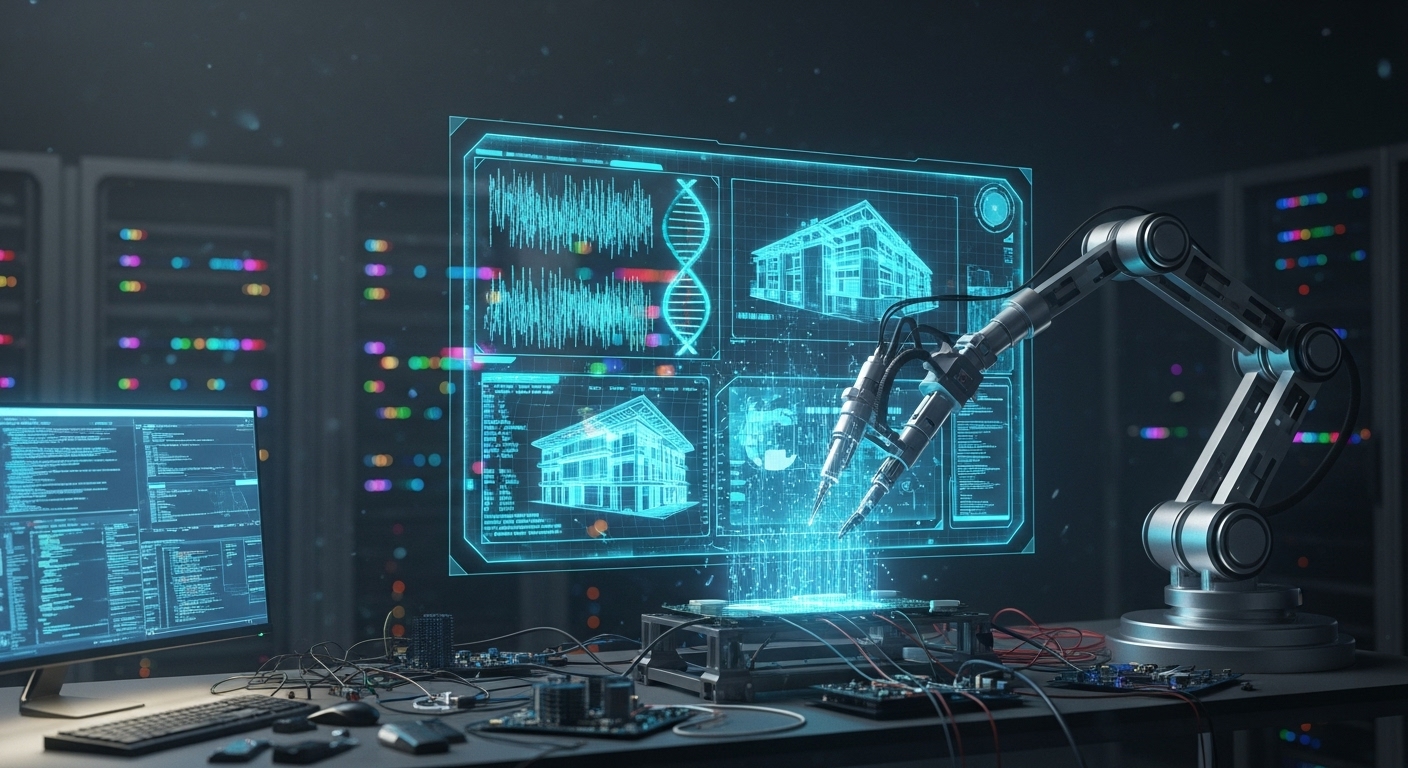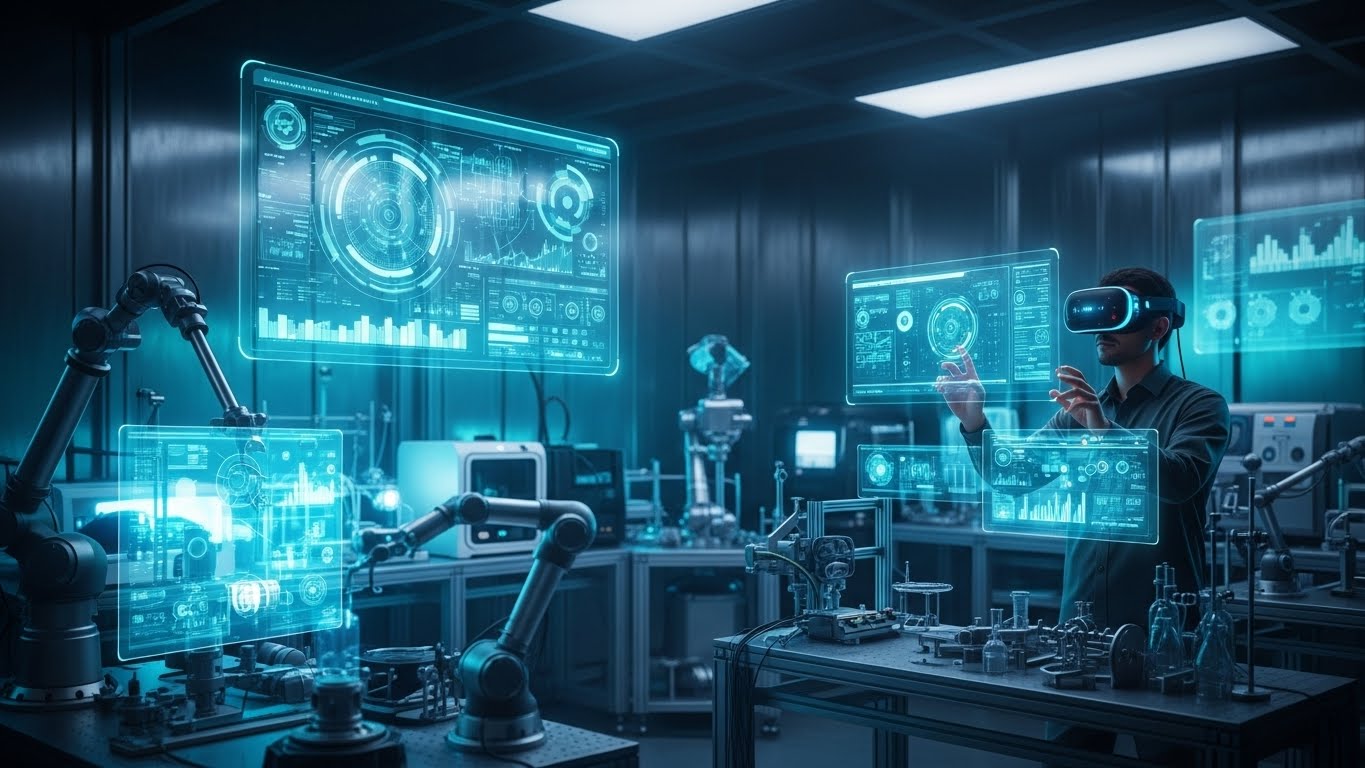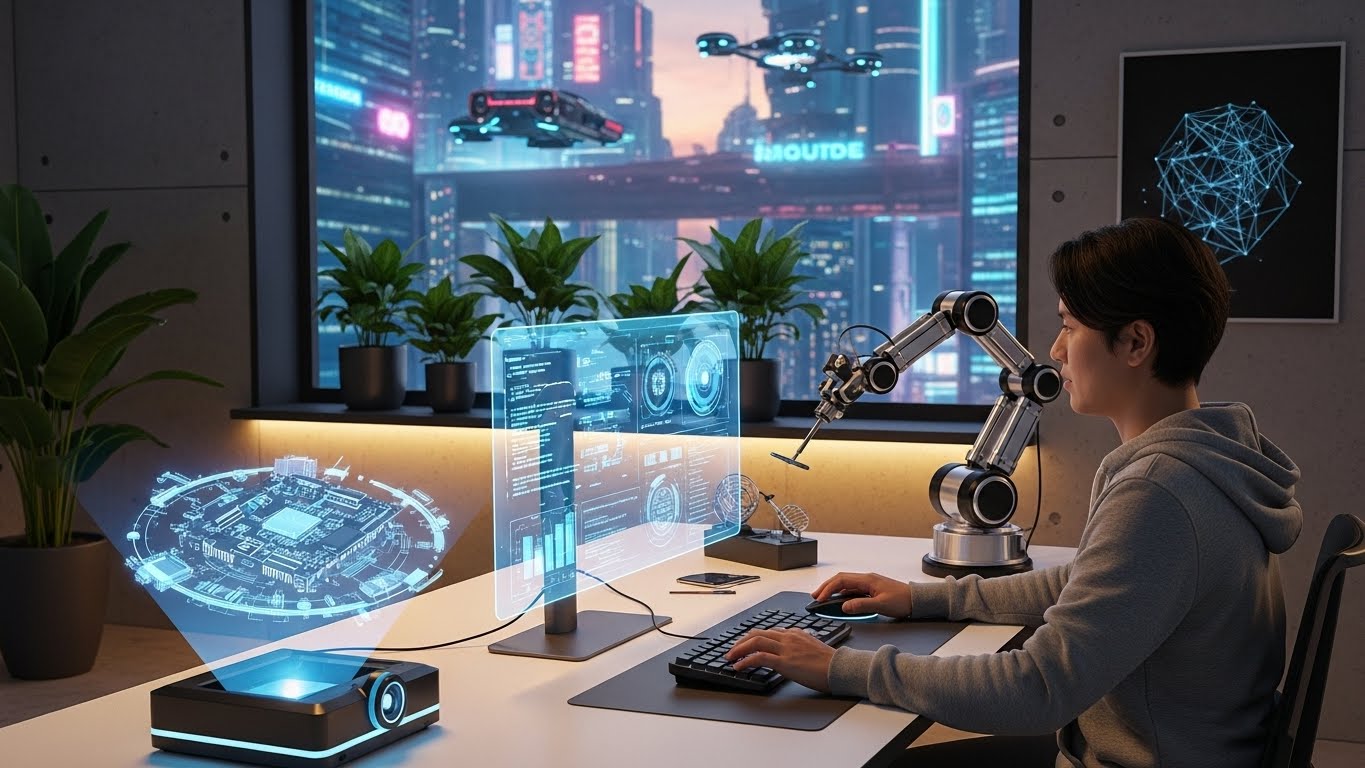Introduction: The Tech-Driven Transformation
In today’s world, technology evolves at a rapid pace, transforming every aspect of our lives. From the way we communicate and work to how we entertain ourselves and solve problems, innovation is at the core of societal advancement. Emerging technologies like artificial intelligence, blockchain, and quantum computing are not just buzzwords—they are setting the stage for a future we can only begin to imagine. This blog explores the major technological advancements that are shaping the world and their implications for our future.
The Power of Artificial Intelligence: A New Era of Smarter Systems
Artificial intelligence (AI) is perhaps the most talked-about technology of our time, and its impact is already being felt across multiple industries. From self-driving cars to smart assistants like Siri and Alexa, AI is changing how we interact with technology. At its core, AI involves machines that can learn from data and make decisions without explicit human programming. This has led to breakthroughs in fields such as healthcare, where AI algorithms are helping doctors make more accurate diagnoses, and in finance, where AI systems predict market trends with impressive accuracy. As AI continues to improve, its potential to revolutionize industries like education, customer service, and even creative arts grows exponentially.
Blockchain: A Decentralized Future
Blockchain technology, often associated with cryptocurrencies like Bitcoin and Ethereum, offers a decentralized, secure way to store and transfer data. Unlike traditional systems where information is controlled by centralized entities, blockchain operates on a distributed ledger, ensuring transparency and reducing the risk of fraud. Its implications extend beyond finance, as blockchain can be used to verify the authenticity of products in supply chains, create secure voting systems, and protect sensitive medical data. As the technology matures, we can expect to see more widespread applications of blockchain in various sectors, making it one of the most exciting innovations of the digital age.
The Rise of Quantum Computing: Breaking the Limits of Traditional Computing
While traditional computers process information in binary bits (0s and 1s), quantum computers utilize quantum bits, or qubits, which can exist in multiple states simultaneously. This opens up the potential for solving complex problems that classical computers simply cannot handle, such as simulating molecular structures for drug development or optimizing supply chains for large corporations. Although still in its infancy, quantum computing has the power to revolutionize fields like cybersecurity, artificial intelligence, and climate modeling. As researchers continue to refine quantum technology, we may see a future where the computing power of these machines outpaces anything we’ve known.
The Internet of Things (IoT): Connecting the World Around Us
The Internet of Things (IoT) is the concept of connecting everyday devices to the internet, allowing them to send and receive data. From smart thermostats and wearable fitness trackers to connected appliances and autonomous vehicles, IoT is rapidly integrating into our daily lives. By providing real-time data and enabling automation, IoT is transforming industries like healthcare, manufacturing, and agriculture. For example, smart cities use IoT devices to monitor traffic, air quality, and energy consumption, improving efficiency and sustainability. As IoT devices become more sophisticated, the possibilities for creating more connected, intelligent environments will expand.
Augmented Reality (AR) and Virtual Reality (VR): Immersive New Realities
Augmented reality (AR) and virtual reality (VR) are technologies that offer immersive experiences by blending the real world with digital elements (AR) or creating entirely digital worlds (VR). While VR has made a huge impact in gaming and entertainment, AR is proving to be a powerful tool for industries such as retail, education, and healthcare. AR allows users to overlay digital information onto the physical world, enhancing learning experiences or enabling consumers to visualize products before purchase. VR, on the other hand, is being used for immersive training simulations in areas like medicine, aviation, and military, where real-life scenarios can be replicated in a safe, controlled environment.
The Future of Work: Automation and Remote Collaboration
As technology advances, automation is transforming the workforce. From robotic process automation (RPA) in industries like manufacturing and logistics to AI-powered tools that assist with decision-making, machines are increasingly handling repetitive tasks, freeing up human workers for more complex and creative endeavors. However, automation also brings challenges, such as job displacement and the need for upskilling workers. On the flip side, technology is reshaping the future of work by enabling remote collaboration. Tools like Zoom, Slack, and Microsoft Teams have revolutionized how teams work together across distances, allowing for more flexible, global collaboration. The workplace of tomorrow will likely blend automation with human ingenuity, fostering a more productive and innovative environment.
Sustainability Through Technology: Green Tech and Eco-Friendly Solutions
As the world faces the growing threat of climate change, technology is stepping up to provide sustainable solutions. Green tech encompasses innovations designed to reduce environmental impact, such as renewable energy technologies, electric vehicles, and energy-efficient buildings. Solar and wind power are now more cost-effective than ever, while battery technology is making it possible to store energy for longer periods, addressing one of the major challenges of renewable energy. Additionally, technologies like smart grids help optimize energy consumption, while AI is being used to monitor and reduce waste in industries like manufacturing and agriculture. The marriage of technology and sustainability holds the key to a greener, more eco-conscious future.
The Ethical Implications of Emerging Technologies
With the rapid pace of technological advancements, it is crucial to consider the ethical implications. Issues such as data privacy, AI bias, and surveillance are at the forefront of debates surrounding emerging technologies. As more personal data is collected and used to power AI systems, the question of how that data is protected becomes increasingly important. Additionally, AI systems are only as good as the data they are trained on, and biased data can lead to unfair or discriminatory outcomes. As we integrate these technologies into our lives, it’s essential to establish regulations and frameworks that ensure these innovations are used ethically and responsibly.
Conclusion: Embracing Change and Shaping the Future
The pace at which technology is advancing is both exciting and overwhelming. As we look to the future, technologies like AI, blockchain, quantum computing, and IoT will continue to reshape how we live, work, and interact with the world. However, with this progress comes a responsibility to address the challenges and ethical concerns that accompany new innovations. By embracing change and ensuring that these technologies are developed and used for the greater good, we can create a future that is not only technologically advanced but also equitable, sustainable, and ethical.



